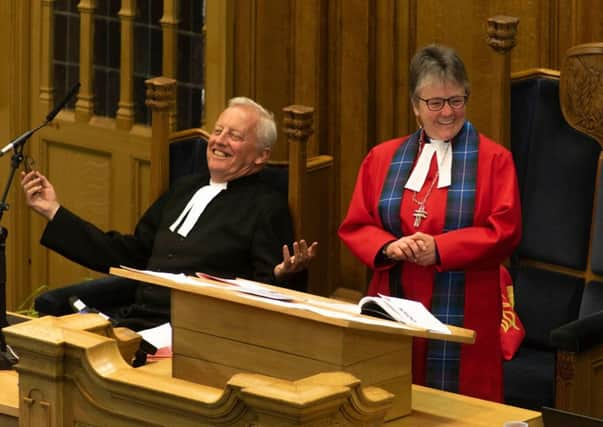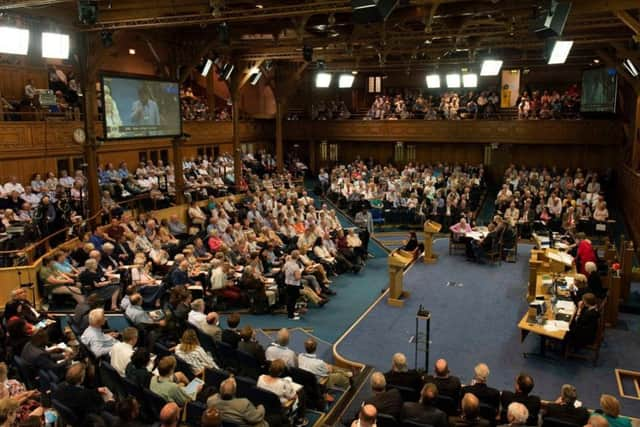Church sell-offs loom to ensure future of the Kirk


At an ill-tempered debate at the 2018 General Assembly of the Church of Scotland in Edinburgh yesterday, many delegates criticised the Kirk’s Strategic Plan, presented in a controversial business format, aimed at addressing issues such as plunging church membership especially among the young, the fall in the number of ministers and income, saying it was not radical enough and lacked urgency.
The Strategic Plan admits there is a need to “manage limited resources carefully and prioritise what we do.”
Advertisement
Hide AdAdvertisement
Hide AdHowever, it was rejected by 439 votes to 130, with a motion passed to instruct the Council of Assembly to come back with a much more radical plans at next year’s General Assembly detailing what it would do between 2019 and 2022 “to achieve much-needed reform within our church”.


The Kirk is one of Scotland’s most important land and property owners with an estate of around 1,500 buildings, including 830 manses and 12,500 acres of glebe land and a capitalised value of more than £515 million.
Another flashpoint was that, despite the services of a consultancy firm costing £100,000, there was still no recommendation to the General Assembly about the future of the Kirk’s prestigious headquarters, located in prime city centre retail space at 121 George Street in Edinburgh. The building, which houses about 200 staff, is in need of costly maintenance and renovation.
Options being considered include selling it, undertaking basic maintenance or subletting part of the site.
The Rev Michael Goss, from the presbytery of Angus, told delegates that relocation “was urgently needed” while other delegates suggested a range of alternative locations for the Kirk’s headquarters ranging from Polmont and Stirling to Glasgow or Dundee.
Rev Dr George Whyte, principal clerk to the General Assembly, said: “It’s the classic headquarters thing, people regard it as where their money is sent and spent and maybe don’t like it. There’s a natural in-built resistance to it.
“However, staff have built their lives around it, it is where our national committees meet and is ideal for transport and for our volunteers to reach. A brownfield site or being based on a university campus would work against us.”
The Strategic Plan, from the Kirk’s Council of Assembly, follows consultation and road shows in Edinburgh, Glasgow, Dundee and Inverness.
Advertisement
Hide AdAdvertisement
Hide AdIt states: “Our history has included divisions which have left a legacy of too many buildings, many of which are too expensive for small congregations and some of which are in the wrong places.”
Detailing the timescale, it says by 2020 the General Trustees and Council of Assembly will have an integrated strategy for the appropriate development and disposal of buildings. It continues by saying that by 2021 its national offices in George Street will either be fit for purpose or in alternative premises, and that by 2028, all Presbyteries will have drawn up and will have begun implementing a plan for the use, development or disposal of all their buildings.
The Strategic Plan lists other goals such as ending deficit budgets and engaging with global and local concerns, gives targets and how they will be measured by specific dates.
But the Very Rev Dr Derek Browning, minister at Morningside Parish Church in Edinburgh, who was the previous Moderator, said: “I have rarely read a report which has caused me so much disappointment. It is ‘castles in the air’, thick on gloss and thin on substance.”
Dr Browning received loud applause when he said: “There are no definites to be picked apart. That is what the General Assembly is for … there is nothing here for us to get our teeth into. Many of the things are already in place. The General Assembly deserves better after two years.”